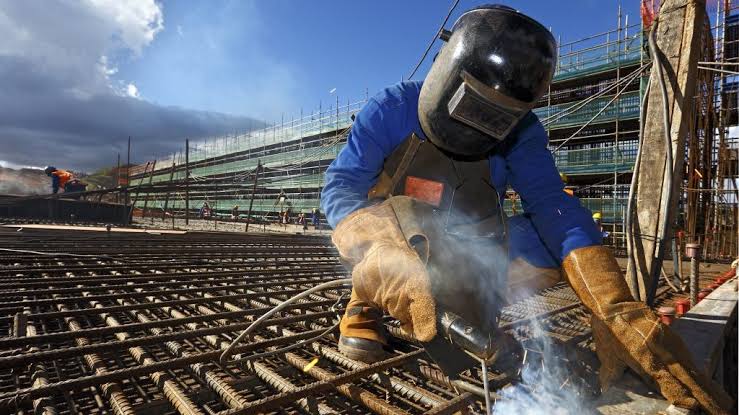Germany set to introduce ‘one of the most modern immigration laws in the world’
What’s going on?
Germany’s long-debated Skilled Worker Immigration Act aims to make it easier and faster for skilled foreign workers from non-EU countries to come to the country, to help plug the growing labour shortage. The reforms announced in March include loosening Blue Card rules and introducing a points-based immigration system.
The urgency for the reforms was made clear in the latest report by the Institute of German Economy (IW) released in April, according to which the skills gap in Germany became even wider last year, with employers unable to fill around 630,000 job vacancies in their industries.
The SPD, Greens, and FDP factions of the German coalition government have now reached an agreement on the final changes to the Skilled Immigration Act. The parliamentary managers, Katja Mast (SPD), Irene Mihalic (Greens), and Johannes Vogel (FDP), announced on Monday that the law will be discussed in the Bundestag this week.
What changes do the reforms bring for skilled workers?
Under the new legislation, skilled workers will be able to come to Germany with two years of professional experience and two years of educational experience. Previously, a professional qualification in a specific field was required to obtain a working visa before entering the country.
Sigudur, a native of Iceland, checks the landing gear of a Boeing 747 at the Haitec aircraft shipyard in Hahn. Germany is struggling with a skilled worker shortage. Photo: picture alliance/dpa | Thomas Frey
Skilled workers will also have the opportunity to start working in Germany even while their qualifications are being certified, not only in their chosen profession but also in other similar occupations. They will also be allowed to work up to 20 hours a week on the side or engage in full-time work for a trial period of two weeks.
Moreover, the reform allows skilled workers to obtain a permanent settlement permit (Niederlassungserlaubnis) after three years instead of the previous requirement of four years.
Loosening Blue Card rules
The draft legislation includes proposals to reduce the salary requirements for eligibility for a Blue Card, making it possible for those with lower earning potential, especially those starting their careers with a university degree, to obtain this type of visa.
The latest changes announced on Monday mean that the income threshold for labour migration through the Blue Card will be lowered to approximately €3,500 gross per month.
The rules for IT professionals will also be relaxed, allowing those with relevant career experience or skills to qualify for a Blue Card even without a university degree.
The “Opportunity Card”
A new feature of the reform is the introduction of an “Opportunity Card”, or Chancenkarte, which will bring in a points-based system for those seeking employment in Germany, regardless of whether they already have a job offer.
The points will be awarded based on qualifications, German language proficiency, age, and connection to Germany. To enter the country with the Chancenkarte, migrants must score at least six out of a maximum of ten points.
The latest changes to the draft law have lowered the minimum requirements for German language skills A2 to A1 level.
Another new addition to the law is that the card can be extended for up to two years if the applicants can present an employment contract for qualified employment and the Federal Employment Agency agrees.
Change of track for asylum seekers
One of the notable changes introduced by the Greens is the allowance for asylum seekers to have a “change of track,” granting them the right to stay in the country for work purposes.
Irene Mihalic of the Greens stated that, if asylum seekers have a job offer that ensures their livelihood, they should be able to enter the German job market.
This change would benefit companies that are waiting for those who are already in the country to start working and would also relieve municipalities of some of the associated bureaucratic processes and costs.
Johannes Vogel of the FDP highlighted that this regulation will apply retroactively to asylum seekers who are already in the process, with March 29th of this year being the reference date when the draft law was made public.
New reforms for internal talent
In addition to the need for 400,000 skilled workers annually, there is also a need to support people within Germany in updating their qualifications.
The coalition government has also agreed on the final details of the Vocational Training Act and this will also go before the Bundestag this week.
According to the draft, young people who cannot find an in-company training place should be offered extra-company training. A so-called mobility bonus should also make it easier to accept training places further away.
This commitment to supporting and fostering domestic talent is seen as crucial in attracting skilled workers.
What are people saying about the act?
Speaking at the Day of Industry in Berlin on Monday, Federal Chancellor Olaf Scholz emphasised the importance of these reforms for Germany’s economic future, stating that the lack of skilled workers is currently one of the main obstacles to growth in the country. He stressed the need for modern immigration law to continue driving the economy and prosperity forward.
The agreement has been welcomed by Federal Labour Minister Hubertus Heil, who highlighted the challenges posed by demographic change and the necessity of recruiting skilled workers. Heil emphasised the importance of both tapping into domestic potential and facilitating legal immigration to the labour market, removing bureaucratic obstacles in the process.
Katja Mast, parliamentary director of the SPD parliamentary group in the Bundestag said that: “It is really long overdue that a large economy like the Federal Republic of Germany gets one of the most modern immigration laws in the world and we will achieve that this week.”
Read more @thelocal











